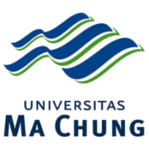Cultural Keyword ‘Eling’ in Javanese and Its Implication in Javanese Society
Abstract
Cultural keywords are important information that we can use to understand how people who use those words see life from their perspective. The same can be said about the Javanese community. Some of their words and concepts are exclusive to their own and they can give hindsight to how the Javanese people perceive their life. In order to analyse the meaning behind cultural keywords, Natural Semantic Metalanguage (NSM) is used in this article. The data was taken from several social media posts to illustrate the core meaning of the word ‘eling’. An explication is proposed for the word ‘eling’ as well as a brief conclusion about the multiple meaning of ‘eling’ and its usage.
References
Goddard, C., & Wierzbicka, A. (2004). “Cultural Scripts: What are They and What Are They Good for.” Intercultural pragmatics, 1(2), 153-166.
Gonda, J. (1975). Handbook of Oriental Studies. Section 3 Southeast Asia, Religions, Religionen: Brill.
Murtisari, E. T. (2013). “Some Traditional Javanese Values in NSM: From God to Social Interaction.” International Journal of Indonesian Studies, 1(1), 110-125.
Quinn, G. (1992). The Novel in Javanese: Aspects of Its Social and Literary Character: KITLV Press.
Sapir, E. (1949). “Selected writings of Edward Sapir in language, culture, and personality.” In D. G. Mandelbaum (Ed.), Culture, Language and Personality: Selected Essays. Berkeley: University of California Press.
Stuart Robson, D., & Wibisono, S. (2013). Javanese English Dictionary: Tuttle Publishing.
Wierzbicka, A. (1992).: Semantics, Culture, and Cognition: Universal Human Concepts in Culture-Specific Configurations Oxford University Press.
Wierzbicka, A. (1997). Understanding Cultures through Their Key Words: English, Russian, Polish, German, and Japanese: Oxford University Press.
Wierzbicka, A. (1999). Emotions Across Languages and Cultures: Diversity and Universals: Cambridge University Press.
Wierzbicka, A. (2014). Imprisoned in English. New York: Oxford University Press.
Open Access Policy
This is an open access journal which means that all content is freely available without charge to the users or their institution. Users are allowed to read, download, copy, distribute, print, search, or link to the full texts of the articles, or use them for any other lawful purpose, without asking prior permission from the publisher or the author. This is in accordance with the BOAI definition of open access.
![]() This work is licensed under a Creative Commons Attribution-ShareAlike 4.0 International License.
This work is licensed under a Creative Commons Attribution-ShareAlike 4.0 International License.

















